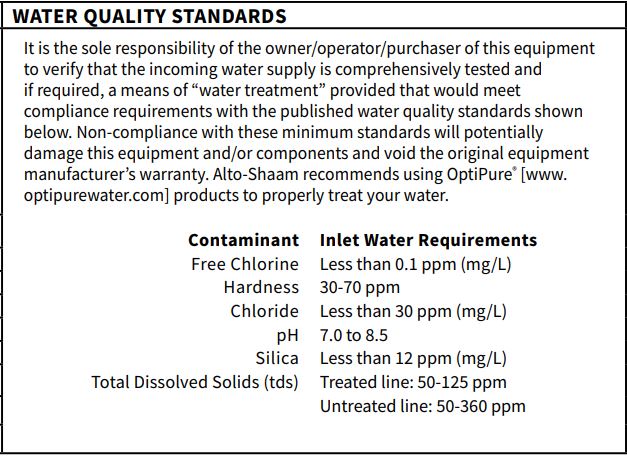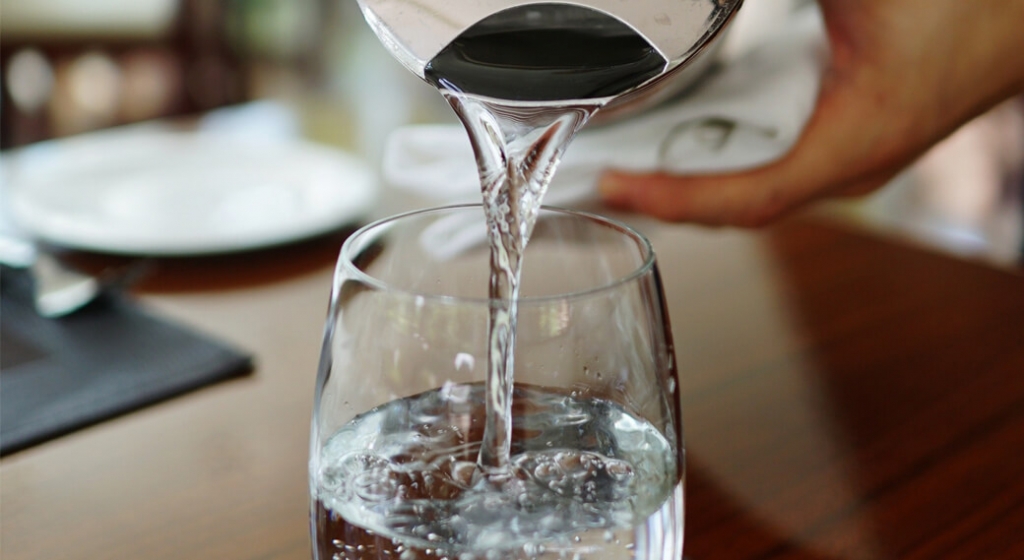Whether you’ve just opened a new restaurant or manage an established venue, your building’s water quality is going to impact your operation in more ways than you’d imagine. From the taste of your coffee, to the appearance of your bartender’s perfectly blended margarita. From your steamer and combi oven, to your ice machine – nearly everything is touched by the quality of your water.
Setting Your Customer’s Expectations
Everyone knows that first impressions are a critical phase of your customer’s culinary experience. Upon arriving at your venue, you’ve already drawn them in with your careful placement of foodservice flair. Maybe you have a rustic ambience with a central fireplace. Maybe the high-energy, friendly atmosphere of a 1950’s diner is more your style. Before customers get their first taste of your cuisine, first things first – a glass of water.
The first “taste” of your restaurant will be the first sip of water while they review your menu. And customers always notice the water. Is the ice cloudy? Does it taste like the iron-laced hard water etched in your memory when visiting a relative with well water? Or is the ice clear and water refreshing?
So what, it’s just a glass of water, right? Wrong. It sets the stage for everything after. The taste of the coffee, the taste of a mixed drink from you bar, the visual appeal of ice in the pricy drink they just ordered. All of which, if it looks and tastes great, a customer is happy to pay for and then ask for more.
Poor Water Quality Can Void Your Warranty
If your venue has invested in a commercial steamer, the necessity of clean water goes far beyond its effects on the flavors of your food and drinks. After investing in a steamer or combi oven, meeting water quality standards is often required. If a specific piece of commercial equipment has an incoming water line, check the spec sheets and warranty.
When reviewing your spec sheet, you will often find requirements to limit the levels of hardness, chloride and dissolved solids. This is to prevent your warranty from being voided. Maintaining proper water quality can also greatly reduce service calls and repairs. It’s important to note that the onus is on the equipment owner to meet these water quality specifications.

Fortunately, tackling poor water quality is a common challenge that has solutions available for affected restaurateurs.
What’s in Your Water?
There are several causes for cloudy ice and poor tasting water. Below are some common reasons your water may smell or taste bad:
- Musty or earthy taste – Organic matter, burnt wood runoff, algae or bacteria.
- Chlorine or “swimming pool” taste – If it smells like chlorine and tastes like chlorine, it’s chlorine! (Introduced into water supplies as a disinfectant.)
- Bitter taste – often caused by too much copper dissolved in the water.
- Metallic or tastes like blood – Often caused by too much iron and other metals suspended in the water.
- Rotten egg smell and taste – Generally caused by the breakdown of organic matter in the water system. Usually considered safe to drink.
Sometimes water smells and tastes fine, but both the water and ice appear cloudy. Although this isn’t a great look to the customer, the water is often perfectly safe to drink. When in doubt, (and certainly if you just moved your restaurant into a new building,) have the water tested for dangerous types of bacteria or viruses to ensure your incoming water is at least drinkable.
How Can You Improve Your Water Quality?
First and foremost, when scouting a location for your restaurant, bar or food truck, don’t skip out on testing the water. Test for bacteria. Check for Lead. Test for hardness and dissolved solids. If you have your water tested before moving into a new location, you’ll be ahead of the game. Maybe you’re water quality test will come back with flying colors. At least you’ll know and can decide if you need to mitigate any issues before installing your equipment.
Once you’ve determined the water quality levels are at manageable levels, you can begin looking for commercial water filters if necessary. These are not only designed to improve the look and taste of your water. Commercial water filters help mitigate harmful scaling in affected foodservice equipment. This keeps your warranty intact and equipment operational longer between maintenance windows.
More often than not, it’s much cheaper to properly maintain equipment rather than wait for it to break down. And installing appropriate commercial water filters cost far less than a new combi oven. And there’s profit to be had when a happy customer takes a sip from their first glass of water and then orders appetizers to go with a top-shelf drink made with perfect ice.



